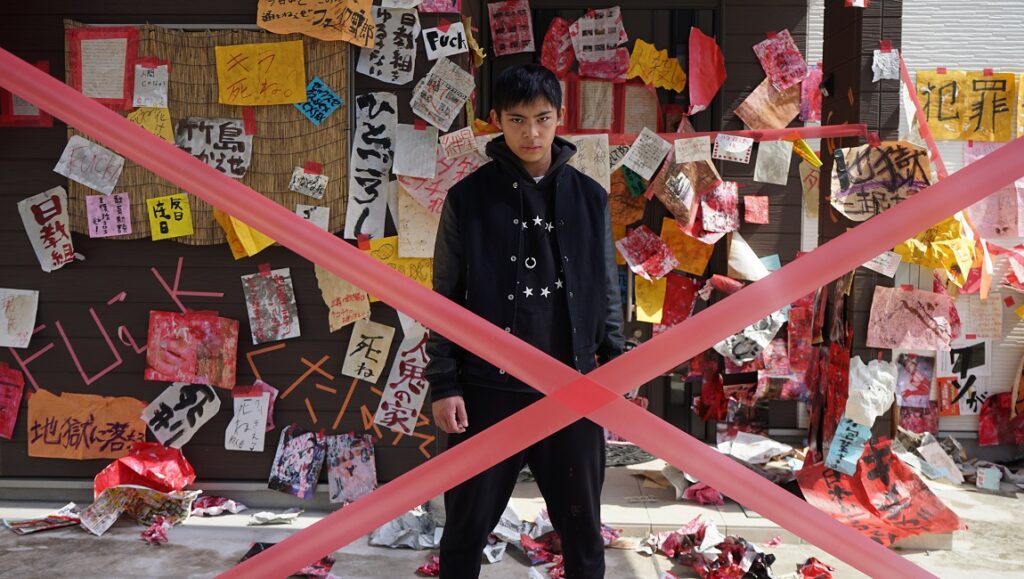Forgiven Children is a reactionary apologist’s straw man, an irresponsible configuration of centrist thought which aestheticizes and generalizes any viewpoints that would be positioned in opposition to it. A young boy is murdered, and his murderer — another juvenile — goes free, the court system sparing the accused, showing sensitivity for his situation, while also largely discounting the feelings of the victim’s family. Following this, a public campaign is waged against the ruling, and director Eisuke Naito begins to juxtapose a torrent of Netizen’s anonymous comments with shots of untouched nature, in the form of picturesque landscapes. The intent is all too clear: the spectacle and chaos of online culture, and an assumed “unjust” mob mentality is placed in contrast with the beauty and tranquility of the natural world; one corrupts our view, blinds us of the other. The primary agent of this distortion, according to Naito, is bullying — in all its different forms, the suggestion being that to practice this behavior is never, under any circumstance, the ethical course. Naito attempts to illustrate this by showing the film’s murderer, now relocated to a new school, befriending a girl who herself is bullied by her peers. The relationship between these two characters seeks to humanize, to articulate the possibility of rehabilitation via guilt and change. But the girl’s trauma is also used to exploit our sympathy, and then to taunt our moral reaction — if we condemn her tormentors, then surely we must also condemn the actions of the reformed murderer that she’s befriended as well.
Which is to say that this film means to promote the moral viability of redemption — in relation to acts of heightened and aggressive cruelty that leave multiple lives in shambles. Why are we presented with this quandary to consider? Through what perspective does this mean to orient itself, if not reactionary political angst responding, in kind, to the terrible and violent men like Zimmerman and Turner who we’ve rightly been warned about by society — and who’ve also been allowed, by the courts, to walk, their violence gone unpunished by a state that forces our trust to be prescribed. Even as such injustices occur, as the biases of sympathy exist in a structure that fails its victims, Forgiven Children tells us to not get angry, to not seek the social reparation of clearly failing systems of societal order. Naito suggests that these perpetrators’ violence will not go unnoticed by the world, that the ghosts of their victims always linger around them, and that their conscience will be the judge, jury, and executioner…as a substitute for real accountability.
Published as part of NYAFF 2020 — Dispatch 3.


Comments are closed.